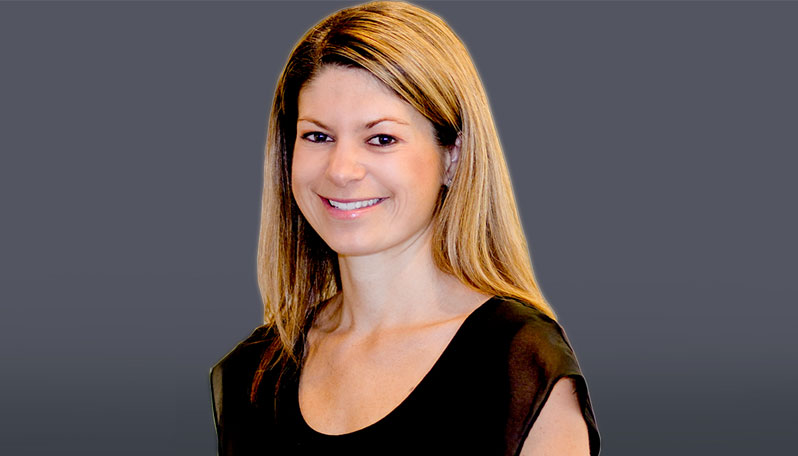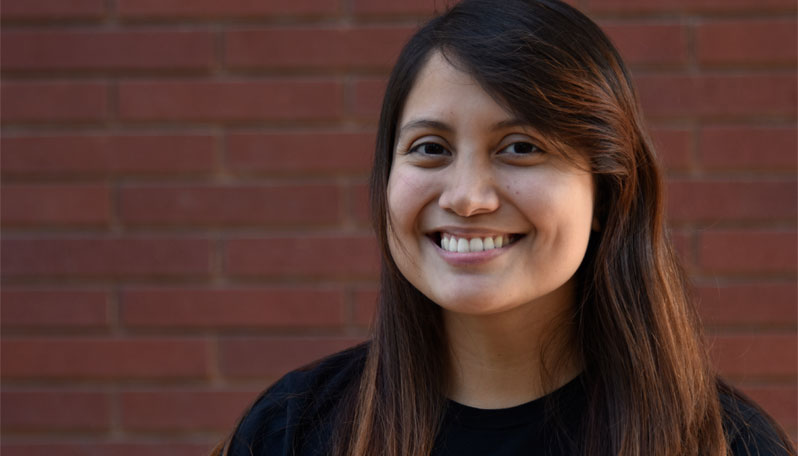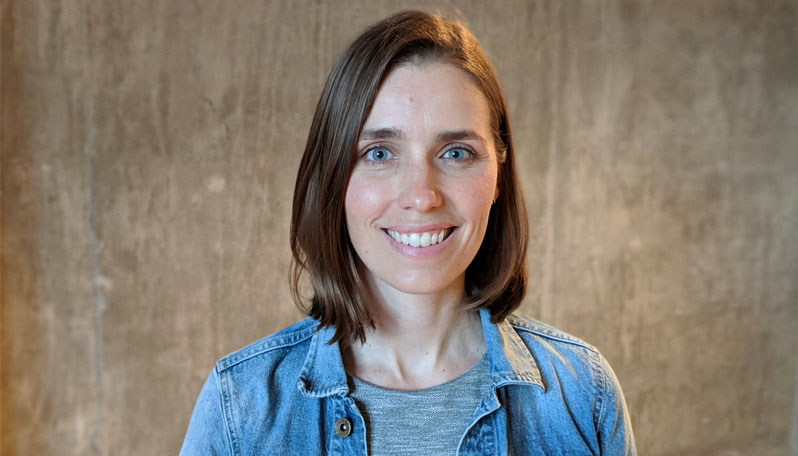Behind the Scenes at a Google for Startups Tech Hub: Meet American Underground's Molly Demarest
This is the first in a series we're producing in partnership with Google for Startups, Google's initiative to help startups thrive across every corner of the world. In the series, we'll feature the people and teams who run Google for Startups Tech Hubs, spaces that partner with Google to provide a community where startups can connect with each other. In this interview, we meet Molly Demarest, the General Manager of American Underground, a Tech Hub in North Carolina serving Raleigh, Durham, Chapel Hill and Cary.
Molly Demarest earned a bachelor’s degree in Business Administration and Accounting from Appalachian State University. After college, she worked as a business coach for Fleet Feet Sports franchisees, supporting entrepreneurs and helping small businesses through assessing financial health, team building, and community engagement before transferring that experience to the team at American Underground.
At American Underground, Molly spent five years leading operations, finance and real estate development before becoming the Director of American Underground’s software company, Big Top. Molly became the General Manager of American Underground when the company absorbed the Big Top brand in January of 2019.
What gets you fired up in the morning?
I love that every day is different and often unexpected. Our purpose is to provide connective structure for the growth of individuals and companies that are disrupting industries. We have to adapt and evolve with them, which is where things get really fun!
The American Underground opened in 2010, and was one of the first of its kind in the southeast, offering a real estate and community platform for high growth companies in the Triangle. But we didn’t (and still don’t) want to do it “any old way,” so we expanded to offer programs with the intent of adding more fuel for growth—and even more importantly, we began to put in place structures to support companies led by women and people of color (Google for Startups has been, and continues to be, one of our biggest partners in that journey).
In 2017 we evolved again to address the need for talent in the region through Big Top, a software platform and events series that focused on democratizing access to the startup community. Half of the battle is overcoming the “who you know” network that often comes with startup/tech communities, and we believed that a structure needed to be put in place to address that—ultimately making it easier for companies to connect with resources (starting with people) outside of their immediate networks. As we merge American Underground and Big Top, the online and in-person platforms will equip us to further scale our support beyond the four walls of our buildings.
What’s next? You’ll just have to wait and see!
At the end of the day, this is about supporting the individuals and teams throughout the region that make up the entire Triangle Startup Community. When I step back and imagine how that translates into the manifestation of dreams, cutting-edge products, job creation, skill development, and on and on…I suddenly become a morning person, ready for the day!
How does your background influence your work?
I have recently found myself at an inflection point, reflecting on how I got here and how I hope to steward those experiences well.
On the personal side, I come from a family of immigrants: 2nd generation on my mom’s side (Peru) and 3rd generation on my dad’s side (Italy). Each generation becomes a little more diluted, but the hustle, resourcefulness, and survivor mindset is something that is deep in my bones (along with a love for the food!). I say what I mean and I mean what I say. Just as my family and faith has significantly influenced my worldview, I find so much joy hearing about how other people’s backgrounds influence theirs.
One the professional side, one of the most formative work experiences I have had was when I was in college working on two death penalty cases, with a specific focus on the ways that race and mental health played a role in sentencing. I could talk all day about the experience, but I will never forget when I was hired to work on a case connected to the North Carolina Racial Justice Act. I spent a summer researching all of the murders in Durham county over a 5-year period to document the facts, which ultimately proved that there was a strong unfavorable correlation (and arguable causation) when looking at how the race of the defendant, the race of the victim, impacts the sentencing. The thing is, this isn’t unique to us, this is a national problem, and after looking at hundreds of court filings, police reports, and new articles, there was no denying that this is a systemic issue.
The tension began then as I found myself more and more aware of how and why these systemic inequities were a far greater issue than learning the proper way to account for gift cards in my accounting class. Nonetheless, I did like complexities of accounting and knew that if I could understand “the language of business,” the opportunities would be endless. But at the end of the day, I struggled to see how diversity, inclusion and business aligned. I thought I had to choose.
And then my perspective changed on my first day at American Underground, 6 years ago, when Adam Klein (former chief strategist at American Underground) told me that “if at the end of all of this, if we have only helped people that looked like us, then we haven’t done a damn thing.” I didn’t know that was an expectation that could be set and I believe that business is nothing without diversity and inclusion at its core.
Can you give an overview of your role and mission at American Underground?
As General Manager for American Underground, my job is to make sure that we are staying two steps ahead of startups in the region, to ensure they have access to the resources needed to grow and be successful. With that, I spend a lot of time thinking about how we can best utilize real estate, programs, partnerships, software, and our team to best evolve with the needs of the community—these companies change fast and so must we! Oh, and fun! What is life without fun?
What inspires you most about your work?
People’s stories. When you learn where people come from, you see that it impacts who they are and where they are going. Entrepreneurship and technology are empowering tools for people.
The stories are endless...but here are just a few:
I think of Daisy Magnus-Aryitey, the Director for Code the Dream, founded in the American Underground a few years ago, with the goal of teaching the immigrant and refugee community to code. Their model has been so successful that they recently expanded to serve anyone from a diverse low income background in the Triangle, including surrounding rural areas. From there, once students graduate from the program, they have an opportunity to continue their learning, as an intern through Code the Dream Labs, which pays them to develop apps and websites for real companies. Just this week they announced an expansion to a second location!
But back to Daisy—she wrote her first line of code in a Code the Dream class, and within a year was working as a full-time software developer at Duke University. Today she runs the show, and I am struck at how her personal story and experiences have equipped her to be the perfect person to lead the organization.
I think of Leigh-Kathryn Bonner, who is a fifth-generation beekeeper, and how since graduating from a Triangle university, NC State, has found a way to make her business, Bee Downtown, scalable to other markets to increase the bee population.
And I think of Bernard Worthy, founder of Loanwell, and alumni of the Google for Startups Black Founders Exchange Program. Bernard went to university here in the Triangle (UNC-Chapel Hill), moved to Atlanta, and then came back to Durham and American Underground as a founder a few years later. He then jumped into a 3-month immersive coding school, became an engineer, got a job with a minority-owned business in American Underground, then spun off to run Loanwell, as the CEO and CTO! Oh yeah, he also just hired his first employee!
Needless to say, to be a part of a person’s journey is always inspiring and always a real privilege.
What advice can you give someone who wants to start a business?
Make sure that you feel the problem that your company is trying to solve. It is going to be a hard journey if you are not passionate about solving that problem.
Also, know what to focus on. Other people will have similar ideas, but they might not know where to focus and prioritize. We see it over and over again, but the companies that know how to focus and prioritize their time and resources are the ones that thrive.
Lastly, I really encourage people to welcome others into their journey, whether that is through seeking out mentors and advisors, or just being open. There are people out there who can help, and the best thing you can do for your individual and company growth is to ask for help.
Photo credit: Richard Barlow Photography
Contact Us
Stay in touch. We want to hear from you. Email us at Acceleratewithgoogle@google.com
Please note that this site and email address is not affiliated with any former Google program named Accelerator.



